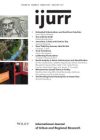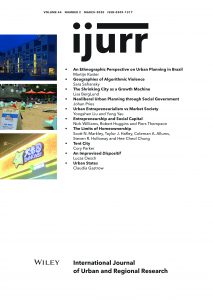City governments are embracing data‐driven and algorithmic planning to tackle urban problems. Data‐driven analytics have an unprecedented capacity to call urban futures into being. At the same time, they can depoliticize planning decisions. I argue that this shift calls urban studies scholars to investigate geographies of algorithmic violence—a repetitive and standardized form of violence that contributes to the racialization of space and spatialization of poverty. This article examines this broader phenomenon through the case of a proprietary market value assessment that is being used to guide development in cities across the United States. The assessment employs an algorithm that helps city officials make critical decisions about which neighborhoods to target for investment, disinvestment and public service upgrades or disconnections. I argue that the racial, infrastructural, and epistemological violence associated with this evaluation can potentially lead to a new kind of municipal redlining. The article brings insights from critical race theory into conversation with critical scholarship on algorithms by analyzing how algorithmic violence works through data‐driven planning technologies to depoliticize and leverage power while further entrenching racism and inequality.

